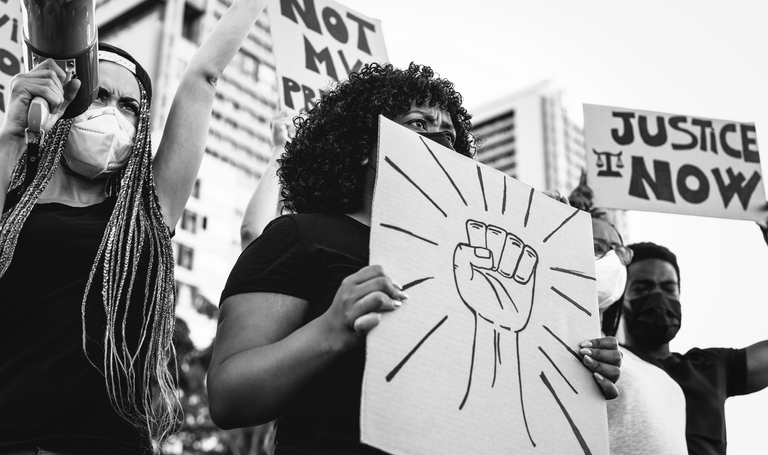Pushing the Envelope: Autistic Black Lives Matter
A Letter from the CEO: Autistic Black Lives Matter
Our hearts go out to the family and friends of George Floyd and to the many other people of color who have been subjected to the insidious racism that continues to plague our country.
As I write this, protests are occurring around the country against racism and police violence. We are all re-examining the roles we play concerning systemic racism, and what actions we can take going forward.
As the CEO of a company that serves the needs of children, adults, and families impacted by autism, I feel compelled to call attention to how neurodiverse people of color face a greater risk of violence.
Research by the Ruderman Family Foundation demonstrates that disabled people can be particularly at risk during an encounter with a police officer. Estimates range from a third to a half of people killed by the police are disabled. In many cases, there is a disconnect between a police officer responding to a call about a potentially dangerous situation and the reality on the ground. And often these cases start with a member of the public reporting someone of color “looking suspicious.”
This was certainly the case for Neli Latson, an 18-year-old autistic black man who was sitting outside waiting for the library to open in Stafford, Virginia. An officer arrived, found that Neli did not have a gun, and then grabbed Neli from behind as Neli was walking away. According to a civil rights lawsuit filed later, Neli exhibited a “fight-or-flight” reaction that would be a common reaction for an autistic person. Neli’s “waiting for the library to open while black and autistic” resulted in a 10-year sentence for assaulting a police officer. Five years later he was granted a pardon by the governor.
We need to work harder to support anti-racist policies and practices in our society. And we also need to educate the public and train police officers to recognize and understand how autistic people – white or black-- might behave in public, and reassure them that these behaviors are not dangerous. We can start with ourselves. I urge you to read some first-person accounts of “Autistic While Black” such as the writings of Catina Burkett and Morénike Giwa Onaiwu.
Angela Nelson, CEO of STAGES® Learning
Editor: Autism Resources & Community

Angela Nelson, J.D., Ed.M.
Angela Nelson is the creator of the widely-recognized Language Builder Picture Card Series, and the creator and lead author for the Language Builder ARIS curriculum. Angela received her BA and JD from UCLA where she studied and practiced behavior psychology under Dr. Ivar Lovaas, and her Ed.M. at the Harvard Graduate School of Education, with a focus on technology innovation and education. As Founder and CEO of Stages Learning Materials, Angela has created autism, special needs and early childhood curriculum products since 1997. In addition to her duties at Stages, Angela writes for multiple industry publications and is Chair of the Education Market Association.




